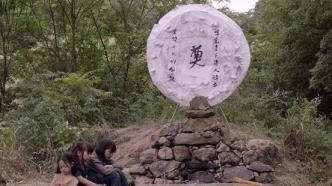
The movie "Mom and Seven Days" records the seven days when the girl Xiao Xian was 12 years old, from the last time she saw her mother to her death. By the time the movie is released in May 2024, Li Dongmei will have been with this movie for 7 years.
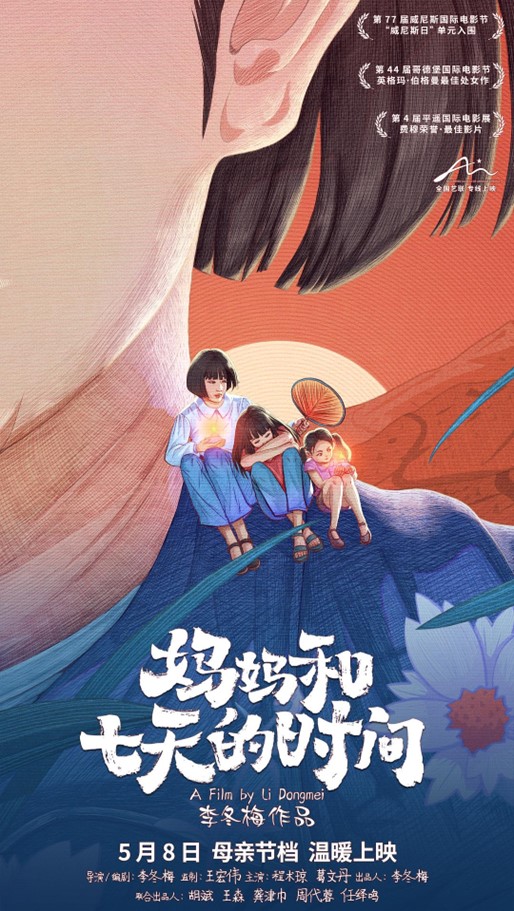
"Mom and Seven Days" poster
Li Dongmei was born in a small village near Wushan. She is the eldest sister in the family and has four younger sisters. In her memory of growing up, there was no happiness in this family. Her father has been working abroad for many years, and her mother has been going through the cycle of pregnancy and childbirth for as long as Li Dongmei can remember. The ancestors were worried because of the "three generations of single inheritance".
The mother only wanted a boy, and this wish ended after the birth of her fifth daughter. The placenta got stuck in the body, causing an irreversible tragedy. What is even more worrying is that the cause of the placenta expansion is that after the mother gave birth to the child, she became "angry" when she heard that it was a girl, and beat her chest with her fists, causing the blood to pour into the placenta.
In the film, four men carry a sliding pole to transport their mother, and they jog down the mountain. The mountain village is far away from the hospital in the town. In fact, the mother could have given birth at her grandmother's house, which was closer to the hospital, but the village custom at that time believed that it was unlucky for a woman to give birth to a child in her natal family. So for a long time, for Li Dongmei and her family, this tragedy was caused by "backward medical care and remoteness of the place."
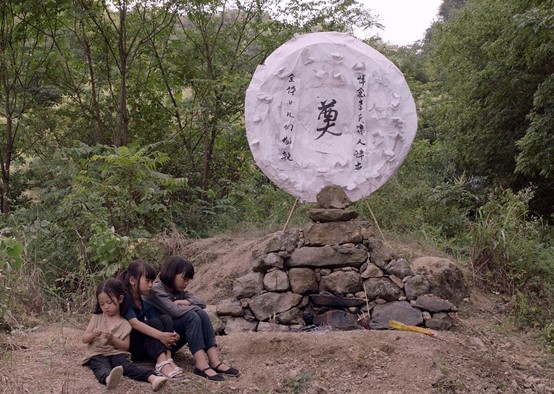
Sisters at their mother's grave
"My mother feels that it is her responsibility to give birth to a son, and it is her fault not to have a son." When Li Dongmei was a child, one question she wanted to ask her mother was: "Why do you insist on giving birth to a son?" The question is: "Where am I not good enough?" This cruel psychological suggestion invariably remains in the hearts of the five sisters of the Li family, tacitly knowing it to each other, but they all feel the same way. "It's a feeling of guilt. I feel that if I were a son, my mother wouldn't have to suffer so much."
In the movie, in front of his mother's grave, Xiao Xian said to his father, "I will be filial to you like a son." In reality, what she did was completely beyond a son. After her mother passed away, her father did not show up for seven years, and she assumed the role of "the eldest daughter like her father". She talked about this line in the movie that stung countless viewers, "It is indeed something that I have been practicing for decades, that is, I live like a son and a man. I have not given myself I have the right to be weak, I want to make money, let my sister go to graduate school, I even think that my father is my child, I take care of his emotions and care about whether he is happy today."
The five sisters are all equally strong, have excellent grades, and have successful careers. They became kindergarten directors, lawyers or educators of special children. The belief that "they are no worse than other people's sons" has become the driving force for the five sisters to improve themselves, but it is also like a shackle, placing a heavy burden on the young and immature hearts of the girls.
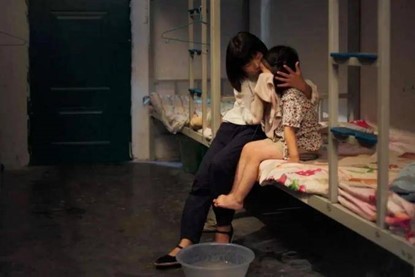
Stills from "Mom and Seven Days"
Li Dongmei is an outlier. She spent the first half of her life as a good girl and was the first college student in the village. After graduation, she got a decent job as a teacher within the system. After starting a business, she even made a considerable amount of money and supported her sister through graduate school.
At the age of 31, her belated rebellion led her to make a decision that everyone around her found unthinkable - to go to Australia alone to study film from scratch. Before this, she was not a movie fan and had very little knowledge about movies. However, she loved literature and narrative, and was found by her colleagues to be able to enter an extremely focused and quiet state when photographing plants and trees. Another original intention that is a bit sad and touching is that at that time, she thought movies were very profitable. She wanted to make money by making movies and set up a fertility fund for women like her mother.
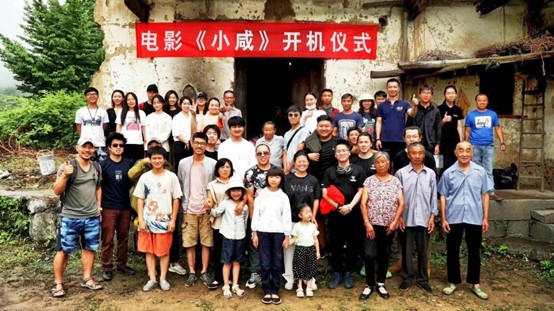
Commemorative photo of the movie launch in 2019, when the film was titled "Xiao Xian"
In 2020, Li Dongmei, who is in her forties, made her feature film debut "Mom and Seven Days." The film sculpts Li Dongmei's childhood memories of the last time she spent with her mother, with long, calm shots that travel through two scenes of rebirth and death. "The time in every scene in the movie is a recurring echo in my memory for more than 20 years." Li Dongmei said.
In the following years, the Venice Film Festival's "Venice Day Best Film", the Pingyao International Film Festival's Fei Mu Honorary Best Film, and the Gothenburg International Film Festival's Ingmar Bergman's Best International Film Debut Award... This "Chinese-style countryside" "Maternity Story" has received echoes in different countries and cultural environments. Some people feel a deep resonance with the fate of women, while others marvel at the brave and precise concise film language.
From the media perspective, Li Dongmei’s life is a good story. The tragedies of the previous generation reflect the sad and powerless elegies of the times, and the next generation's self-improvement is passionate and inspiring. But for a family, this pain is indelible and cannot be whitewashed by honors and praises.
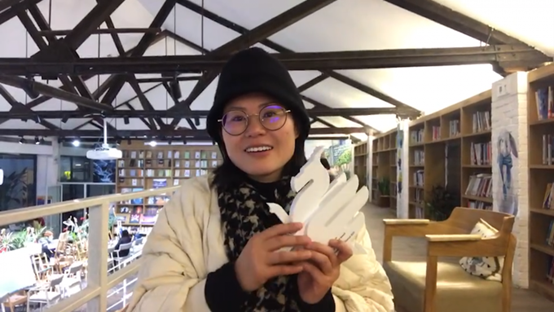
The film won the Ingmar Bergman Award for Best International Film Debut at the Gothenburg Film Festival
After becoming a creator, Li Dongmei had many opportunities to talk about the pain of growing up with various strangers and analyze and interpret it from different angles. However, with her family, no one could understand this real and concrete pain. They won't talk about it. When the sisters are together, they talk more about celebrity gossip. Her father wants to help his daughter a lot, but he still refuses to watch the film.
The awards ceremony in Pingyao is in winter, followed by the Chinese New Year. Li Dongmei took a break from the vanity fair and went to volunteer at a temple, spending a particularly peaceful Spring Festival. Three years after the epidemic, she entered the Shanghai Vancouver Film School to teach, wrote a new script here, and started again to complete her second feature film. She became more and more aware of what she wanted, and the little girl who was once terrified found a solid and determined strength.
Three or four years later, "Mom and Seven Days" will be released at the All-China Federation of Arts on May 8. The release period coincides with Mother's Day. Li Dongmei feels that this is the best consolation for her mother.
The "Huabei" that she used to pay off her Pingyao bonus to finish filming the movie began to be "emptied out" again. In order to allow niche movies to meet more audiences, Li Dongmei chose to spend her own money to run road shows in as many cities as possible. After all, this movie, which has no stars, a slow pace, and even sparse words in its lines, is extremely unlikely to be scheduled in a schedule that is convenient for the audience to watch the movie. For other movies, taking celebrities on roadshows is the icing on the cake to increase exposure, but Li Dongmei's roadshow is even a bit desperate and helpless. Gathering the audience who want to watch the movie by having the main creators communicate in person and organizing movie viewing groups is the best way that Li Dongmei and the distribution team can think of to "salvage" the audience.
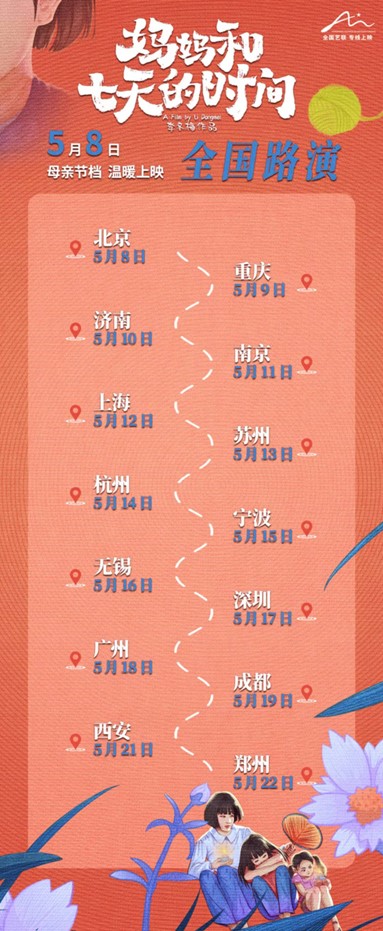
"Mom and Seven Days" road show schedule
In the past few years, "Mother and Seven Days" has been screened at various film festivals. At the end of each time, there are always emotional audiences telling Li Dongmei how they were deeply hurt or soothed by the movie. There are even middle-aged people watching the movie. Then she hugged Li Dongmei and cried bitterly. "One of the original intentions of making this film was to hope that the living conditions of women like my mother, Xiaoxian, and grandma can be seen and understood by more people."
Before the movie was released, reporters from The Paper once again talked to Li Dongmei about the movie. In the narrative about family history, she is the little girl who faced pain and transformed from her cocoon; in the narrative about the movie, she is the creator who has firmly established her own unique style and aesthetics.
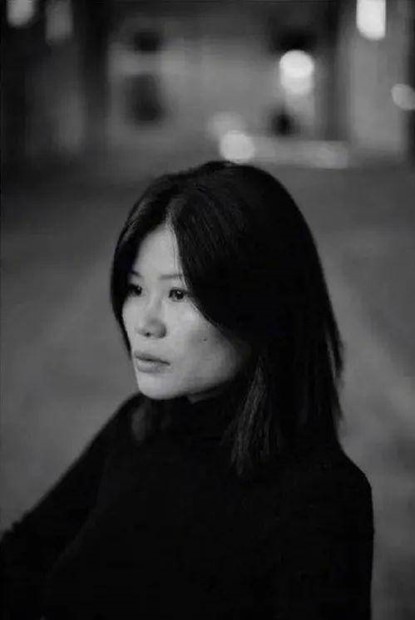
Li Dongmei
【dialogue】
Wounds where new skin grows
The Paper: The time and space setting in the movie is the last seven days before my mother passed away. After your mother passed away in reality, how did the status of the people around you change?
Li Dongmei: What impressed me most was my two younger sisters, who are 4 and 8 years younger than me respectively. At that time, my father left after my mother passed away. He left for 7 years and never came back once. At first he would write letters to me, but later he stopped writing letters. For four or five years we thought he was no longer in this world.
There may have been more fear as a child, but also resentment. But I was able to understand it later. In fact, my father had a very difficult time in those years. He was paying off debts and living with a lot of guilt. When we went back to our hometown to show a movie this time, my father said that he could do a lot of things for us, but he just couldn't watch this movie.
In fact, he has not yet come out of the shadow in his heart. I just discovered that this matter is also very important to my father. He may never dare to face it. We were children and we knew we were innocent. So I can tell this story as a narrator, but my dad doesn’t feel that way, and his guilt may never be told to anyone.
As for my grandmother, when my mother just passed away, she would be very sad every time she mentioned her. Every year when we sisters go to my mother’s gravesite, my grandmother will go with her. But more than ten years later, my grandma told me that she was tired of crying and no longer wanted to be sad about this incident.
As for the sisters, they are all very hard-working and strong, and every one of them has achieved very good results. Everyone seemed to be holding their breath tacitly, wanting to prove that they could do well and that they were no worse than other people's sons.
The other people in the village didn't say anything after that. In fact, they were quite empathetic. This time I went back to the village to play a movie, and many villagers went to watch it. They still felt sorry for my mother's fate.

Grandma and mother in movies
The Paper: The year before your film won the award, you accepted many interviews and shared a lot of your experiences and pains. Does facing the most painful memories in your heart and telling them over and over again bring you any new feelings?
Li Dongmei: It’s been the seventh year since I actually started writing this script. Over the past seven years, I have been related to this story almost every day. There's a lot to do before a movie is released, and it's a long road to meeting the audience. During this process, I accepted many interviews, and each interview required me to face those experiences and pain head-on. But I had been able to capture the experience on film, so the interview wasn’t too much of a burden for me.
But there is a feeling that is really interesting. I found that in the process of telling, many things were deformed and became blurred. What was once so profound, the very concrete feelings in my heart at that time, have been completely abstracted into words. This abstraction is a kind of stripping and alienation. But I think it's pretty good.
I went back to my hometown a few days ago and went to my mother’s gravesite. I set foot on that road in the early morning amid the chirping of birds, and I felt particularly peaceful inside. She has been walking for more than thirty years. I even felt dizzy when I walked that road in the past. But now, I just feel like that road happens to be where my mom is laid to rest. I sat next to her grave, looking at the scenery and mountains facing her grave, and came back very peacefully. It's a bit like a wound that has completely clotted and grown new skin.
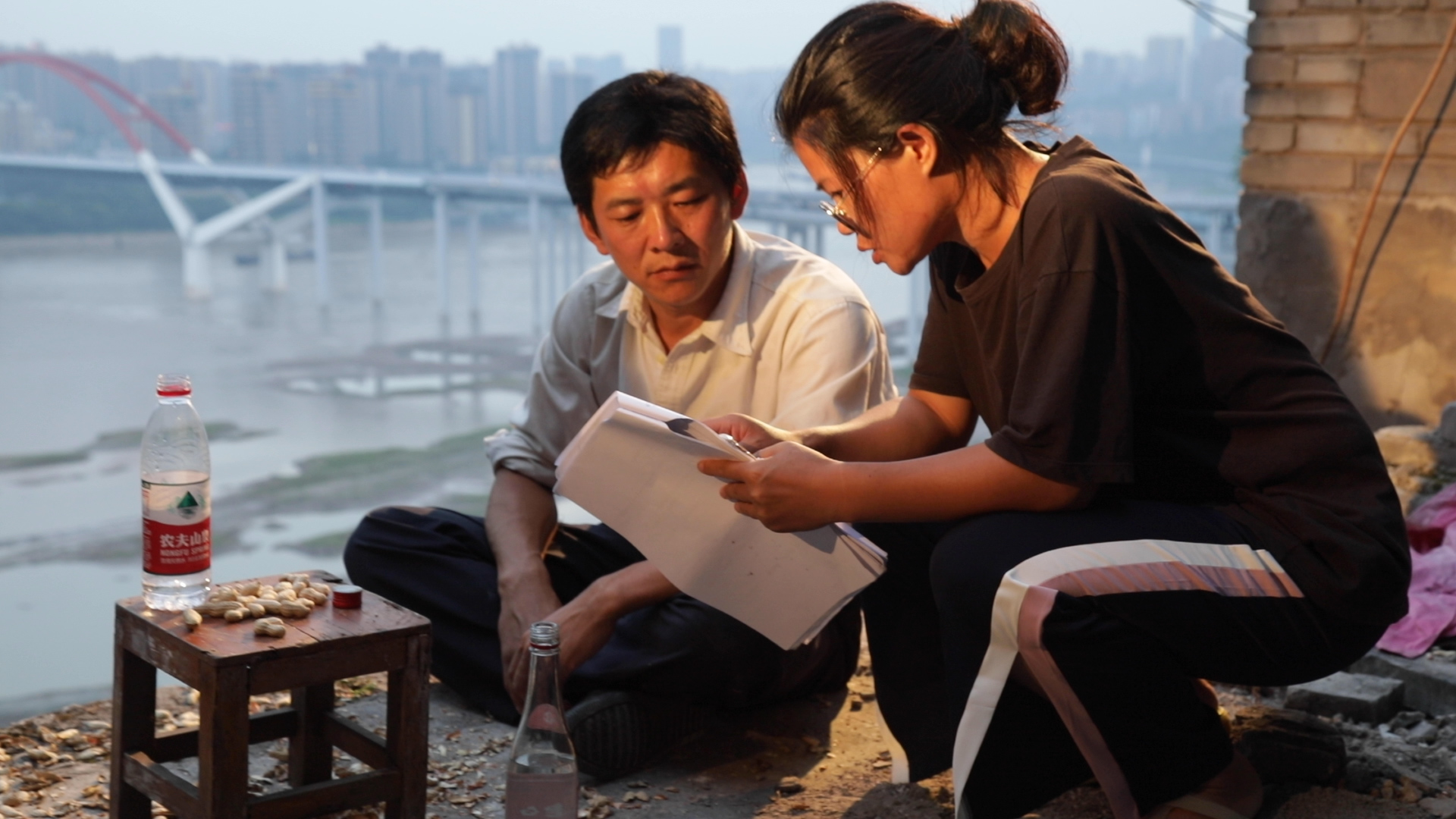
Li Dongmei's work photos
The Paper: When making the movie, we went back to the village and let some people who experienced the events at that time participate in the movie. Did their memories as adults who experienced it supplement some of the material in the movie?
Li Dongmei: I interviewed the young grandfather who carried my mother to the hospital. The details he told were different from what I remembered, and I believe he was closer to the truth. However, I am still very stubborn in restoring my own memory.
This movie can easily lead to misunderstandings among the audience. People think that it is adapted from real experiences and the details are very consistent with what really happened. But when I create, I am not seeking to restore reality in an absolute sense. My feelings, my emotions, and the way I present them are all very personal. From a cinematic perspective, this is authorship. Also, there are things in this movie that are irreducible to me. It just presents an abstract feeling about the time when I was 12 years old when I was 38 years old and wrote this script.
The sound of a flower or a leaf falling to the ground
The Paper: You also lost your mother and missed your mother. You chose to present the story in a very minimalist way instead of gaining more empathy and emotional catharsis like "Hello, Li Huanying". Why did you make such a choice? ?
Li Dongmei: First of all, I think movies like "Hello, Li Huanying" are good. I think Jia Ling must have been very emotionally satisfied when creating this movie. After all, it is a tribute to her mother. Deeply missed. And so many viewers, hundreds of millions of people, can feel, cry and laugh with her, which is actually a merit. I also appreciate movies like that. She is very sincere and the content she expresses is also very simple. But in terms of the dimension of the story I want to present, the starting point is not just missing my mother. Missing my mother is the starting point, but it is not the end of my story.
Therefore, the emotional interaction between the film and the audience may not be so obvious and deep. The reason is that I did not try to have too much emotional connection with the audience. I am not asking for tears from the audience, but I hope that the audience will see not only a sad story, but something beyond reason - the shape, fragility and impermanence of our existence in this world as human beings. Of course, it has a common emotional framework. A mother loses her daughter, and a daughter loses her mother. These things are common to all human beings. But I don’t need to tell you in the movie how painful this daughter is and what will happen to her mother. What we arrive at should not stay at the level of emotions and emotions, but should be understood and felt in a higher dimension.
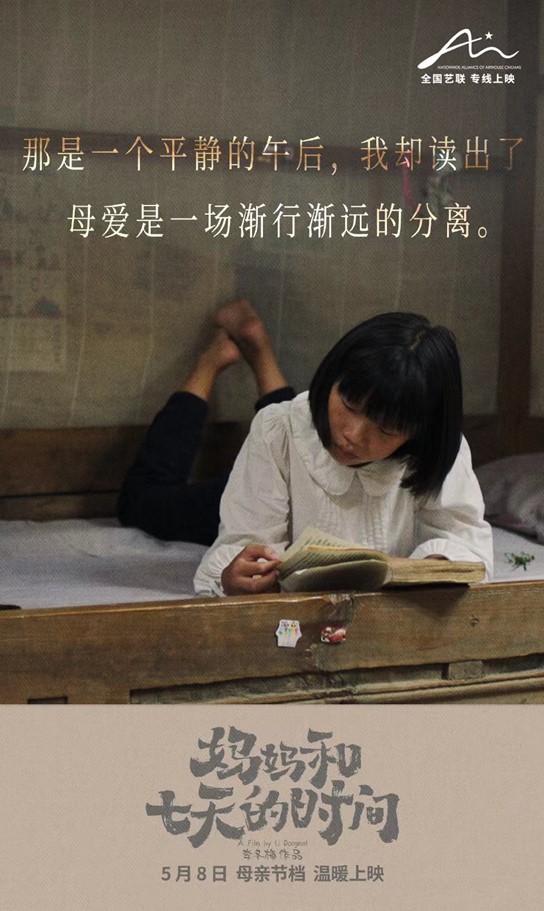
Xiao Xian in the film is Li Dongmei’s own childhood projection
The Paper: Can you elaborate on what kind of movie you want to achieve? And how can current means help you get there?
Li Dongmei: What I really want to talk about is the impermanence of the human world. Because I set such a destination, the way I choose to arrive will be different. Many viewers may think the movie is slow, but in fact, daily life and impermanence go hand in hand. If you can't do your daily routine very solidly, then the arrival of impermanence won't be so shocking.
"Mother and Seven Days" is a very thorough implementation of my view of movies. I'm still proud of it. Had it chosen a more middle-of-the-road approach, the film might not have been as tough as it was. But I have no regrets, because this movie not only satisfied my emotional needs, but also fulfilled my concept of movies. I'm happy that I can do this, because in the process, I also gain greater strength.
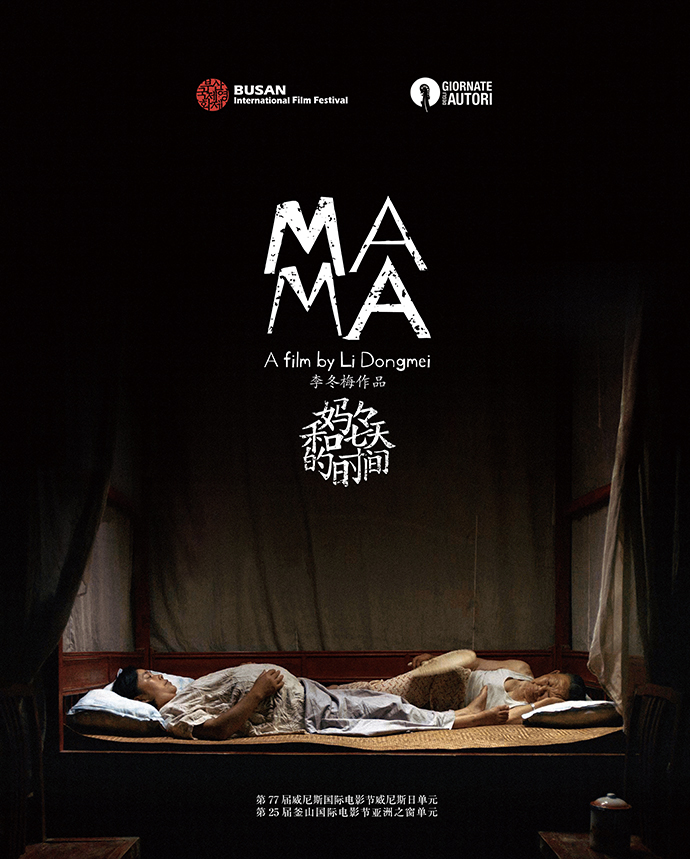
"Mom and Seven Days" poster
The Paper: Your capture and portrayal of time were mentioned in the award speeches for this film in the past. What is your experience in this regard, and how did you acquire and form this concept of film aesthetics?
Li Dongmei: My concept of film aesthetics is closely connected with my outlook on life. How I view life is how I express it in movies. In my opinion, a movie is not only a story, but also an in-depth discussion of life and human nature. As a medium, movies should present those realities that we may usually ignore or are unwilling to face.
I am very concerned about the concept of time in movies. I think time itself is a part of the movie. It is not only the background of the story, but also the force that promotes the development of the story. In my films, I try to use various techniques to present the texture of time itself, so that the audience can feel the passage of time and its impact on characters and stories.
I must admit that Tarkovsky's Carving Time inspired me a lot. When I first read Carving Time, I was deeply moved. In the book, Tarkovsky elaborated on his understanding and pursuit of film art. He believed that film not only records reality, but also explores and expresses the complexity of human hearts through images, sounds and other means. This view coincides with my understanding of movies. That book made me realize that movies are not just shooting and editing, but also a carving of time and an insight into life. So every time before I write a script, I read the book again to bring myself back to the origin of the movie and think about how to use images to express my view of life and time.
The Paper: This extremely extreme way of expression, after getting relatively good feedback from the industry, will it bring any help to your future creative confidence or the director’s right to speak?
Li Dongmei: Maybe in other people's minds, the director's actions make sense, and it is no longer an empty, unfounded "unreasonable request." When I make a new film, I still reflect on whether I am too attached to what I already know and whether I am too limited by the path I am familiar with. So the biggest job I have to do for the next movie is to find a more unfamiliar path.
The praise given by the film festival is only a momentary recognition and cannot be regarded as an eternal monument. I don’t want the award speech at the film festival to be the same forever. I hope that if I win another award next time, the award speech will say that I have made a breakthrough and that I have done a lot of exploration in film. The second film should be something more extreme and concise.
Those previous experiences are no longer suitable. "Mother and Seven Days" is a grand and macro thing, something seen from a distance and a high place, but the new film is something seen with a microscope. The two are incompatible, and one cannot say one thing to include both. But some things are connected, such as time, how do we present time itself through the body of the movie. I did that in "Mama and Seven Days," but I probably took it to an extreme in the new film. I will be more determined or confident in this aspect, but I am always trembling in the beginning.
The Paper: But choosing this method means placing higher demands on the audience. Are you worried?
Li Dongmei: This is an era where short videos are rampant. People’s demand for content has reached the point where they are crazy about excitement and excitement. But I want my movie to be quiet, so that you can hear the sound of a pin dropping. "Mother and Seven Days" may be a flower or a leaf falling to the ground, but it has the sound of wind. The movie might even be a pin drop on a rug. Who would hear a pin drop on the carpet? Especially in this day and age.

Li Dongmei’s film aesthetics has received many recognitions and awards
Does not shy away from the suffering of women, nor does it make concluding remarks
The Paper: When you decided to make this movie, did you realize that your family’s story was a typical “Chinese-style fertility story”?
Li Dongmei: I have never been aware of this, and until now I have not clearly felt that this is such a story. Because my focus has never been on this. I focus more on the individual's feelings and experiences rather than on its typicality or representation. Of course, if others see some typicality in my story, it is just their way of interpretation.

"Mom and Seven Days" poster
The Paper: Women’s issues are very hot in the public opinion environment right now. Have your observations of people around you in this era, as well as some observations of contemporary women, become some of your creative fields or issues of concern?
Li Dongmei: No, it may not have reached the stage where I want to express it in movies. If I were to do it, I would probably make a documentary, contact a large number of women, listen to them or record them, instead of making a concluding speech. Because my films may be more importantly about these things from myself, inwardly. If I were to do it from the outside, the way of arrival would be different, and I feel like I wouldn't have a say in that concluding statement.

Stills from "Mom and Seven Days"
The Paper: Now you can see on the Internet the marketing strategies chosen by some movies, which criticize patriarchal and patriarchal ideas and try to rely on a more universal narrative of women's suffering.
Li Dongmei: My mother gave birth to five children at the age of 36. I don’t have to avoid these things. This is a part of the movie. If as an audience, this is what they want to see, that is also my wish and a kind of comfort. The image of my mother is really seen by others, and some people even have feelings for such a group. Deep understanding and reflection.
So I don’t feel uncomfortable talking about this topic. The copywriting in the promotional short video was written by myself. "My mother felt that it was her duty to give birth to a son, and it was her fault not to have a son." In her short life of more than 30 years, from the time she married my father to the time she finally left this world, she was burdened with this kind of feeling. She always looked preoccupied with the heavy burden.
When a movie goes to Europe, many European audiences will pay attention to the aesthetics of the movie and a director's cinematic outlook. But when it returns to China, to the land where I was born and raised, it can also be a more down-to-earth reality.
I had a very important realization this time. When my movie was shown in the village, some people got choked up. Even men with good living conditions also had a deep understanding after watching it. This surprised me. So I can understand and agree with the choice of the friends at Xuanfa in this regard. Can this film only be shown to people who only go to film festivals? I don't think so.


